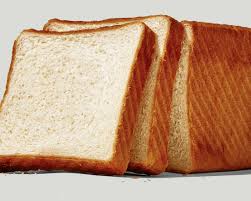4 Medical Considerations for Daily Bread Intake
- Advertisement -
TJ NEWS has curated Reasons Why You Should Stop Consuming white Bread.
Bread, a well-known dish, is popular among people of all ages. Everyone appreciates eating bread and tea for breakfast because it is not only simple to prepare but also filling and light for the morning.
Medical experts, on the other hand, recommend avoiding refined white bread in order to promote health and prevent significant medical issues. White bread raises your risk of obesity and depression while having almost no nutritious value.
- Advertisement -
It is advisable to switch from white bread to more nutritious wheat bread.
In this TJ NEWS article, we will look at some of the reasons you should avoid eating bread.
1. It might result in significant weight gain.
Refined carbohydrates, such as white rice, bread, and flour, cause your body to release too much sugar. Sugar is stored as fat when it is not utilized, which can lead to weight gain.
- Advertisement -
2. Significantly increases blood sugar levels
Bread and other carbohydrate-rich but low-fiber foods are frequently easy to digest and absorb glucose quickly, resulting in a rapid jump in blood sugar levels. Diabetes sufferers should avoid this.
Bread, especially white and refined varieties, has a high glycemic index (GI), which can cause rapid spikes in blood sugar levels. When consumed frequently, this can lead to:
- Insulin resistance: A precursor to type 2 diabetes.
- Energy crashes: The rapid rise and fall of blood sugar can leave you feeling fatigued and hungry soon after eating.
- Weight gain: High-GI foods are often linked to overeating due to their low satiety levels.
Table: Glycemic Index of Common Bread Types
| Bread Type | Glycemic Index (GI) | Blood Sugar Impact |
|---|---|---|
| White Bread | 70-85 | High |
| Whole Wheat Bread | 50-65 | Moderate |
| Sourdough Bread | 35-50 | Low |
- Advertisement -
Choosing lower-GI alternatives or reducing bread consumption can help stabilize blood sugar levels and promote better energy management.
3. Raise your risk of developing type 2 diabetes
Because of its high sugar content and lack of fibre, whitebread produces a lot of sugar. To drive the sugar into the cells, the body secretes an overabundance of insulin.
4. Nutritional Imbalance and Additives
Many commercial breads are made with refined flour, which lacks essential nutrients such as fiber, vitamins, and minerals. Additionally, preservatives and additives in processed bread can pose health risks.
- Low fiber content: Can lead to constipation and poor gut health.
- Additives like emulsifiers: Have been linked to inflammation and altered gut microbiota.
- Nutrient deficiencies: Over-reliance on bread can displace healthier, more nutrient-dense foods in your diet.
Table: Comparison of Nutrients in Bread vs. Whole Foods
| Nutrient | White Bread (Per Slice) | Whole Foods (Equivalent) |
|---|---|---|
| Fiber | 0.5g | Apple (4g) |
| Vitamin B6 | 0.02mg | Banana (0.4mg) |
| Magnesium | 6mg | Almonds (76mg) |
Incorporating whole foods like fruits, vegetables, and nuts can provide more balanced nutrition.
- Advertisement -
If this continues, the cells will become insulin resistant, and diabetes may develop. Bread is also easily absorbed, making you crave more munchies.
Best Nigerian Foods You Must Try and Their Health Benefits

While bread is a convenient and versatile food, eating it daily can harm your health in several ways. From blood sugar imbalances and gluten sensitivity to nutritional deficits, the risks are considerable. By moderating your bread intake and exploring healthier alternatives, you can improve your overall health and well-being.
Consider incorporating whole grains, fresh produce, and other nutrient-rich foods into your diet for a balanced and healthier lifestyle.
- Advertisement -

